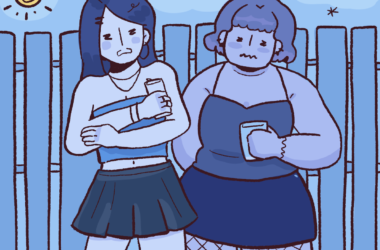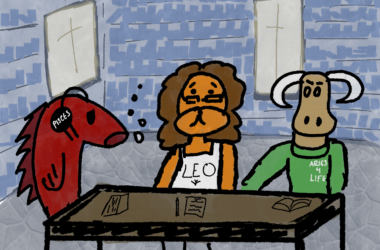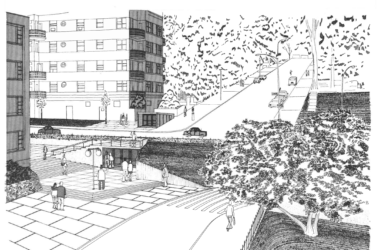 Matt Essert
Matt EssertMcGill is a terrible tundra of frigidness and despair. You can’t go to class without having your nose hairs freeze off or your feet succumbing to terrible frost bite … unless of course, you’re spending a semester at the McGill Bellairs Research Institute in beautiful Barbados.
The Bellairs Institute is home to both Canada’s only teaching and research facility in the tropics and the complete opposite of what comes to mind when most of us think of McGill. Barbados is a beautiful Caribbean island full of green monkeys, fields of sugar cane, and arguably the best rum in the world—pretty different from Montreal. And yet, the Bellairs Institute is a McGill oasis that offers students the facilities to do real field work in a variety of academic areas. According to U2 biology student Claire O’Brien, the small facility in the middle of the west coast of the island provides exactly what students need to conduct this research.
O’Brien explained that besides analyzing data and working on certain projects indoors, most students at Bellairs spend the majority of their time outside and in the field.
“[The student facilities are] like residence basically,” she said. “It’s just what you need, because it’s an island so you’re outside a lot. Your projects and everything are in the field.”
Students generally take three classes over the course of the semester, one at a time, and will also work at an internship where they can gain valuable hands-on experience.
“It’s very much a mutual relationship that’s even more beneficial because you’re a student and these people you work with are like mentors. They run these organizations you get to work with,” explained O’Brien.
As for the classes, all 25-30 students at the institute take the same three: “Intro to Globalization”; “Water Resource Management,” which O’Brien described as more engineering-based; and “Urban Planning.” Because courses are taken one at a time, O’Brien said that the classes are “very sped up,” and students are often faced with class on a Wednesday, a midterm that Friday, and the final exam the following Friday, a situation that is not dissimilar to the time-crunched classes many students at McGill take over the summer semester.
Despite the fast-paced nature of the courses, O’Brien said that it’s easy to learn a lot because much of the material is very relevant on the island.
“The really cool thing about the classes is that everything has to do with where you are. As opposed to learning at McGill in Montreal, you don’t read about these cases or you don’t have to look at textbooks. It’s literally all about what’s going on on the island.”
Unlike many McGill classes with hundreds of students and multiple-choice exams, O’Brien said the Bellairs Institute aims to create a close community between the students present during the semester.
“There’s only 22 students and you live with them and you work with them and you study with them and you party with them, so it’s a totally different experience in that way.”
Originally, the institute was only open to graduate students and professors for research opportunities. With the change to allow undergraduates to attend the institute and engage in a wide variety of research, many students have been eager to take advantage of such an exciting opportunity—and why not? O’Brien, however, cautioned prospective students to do their research before applying to the program. Although it could be thought of as an exchange program, all students at the institute are from McGill, but come from a variety of programs. This offers a particular experience that many will love, but others might not enjoy as much.
“I don’t think it’s necessarily for everyone, it depends on what you’re looking to do going abroad as a McGill student,” O’Brien said. “But it’s really cool that McGill has this. It’s like a mini-McGill on a Caribbean island.”








